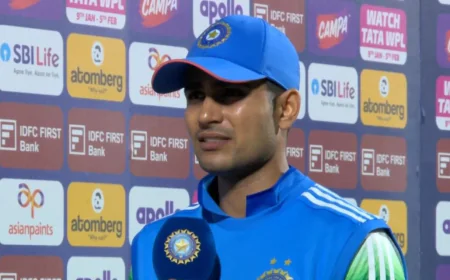Harmanpreet Kaur got a place in 'TIME100 NEXT 2023', became the first female cricketer to do this feat
Navarun Dasgupta of Indian origin has also found a place on this list. Harmanpreet Kaur has become the first female cricketer to make it to Time 100 Next. Time magazine said that the Indian captain, with her aggression and skill, has played a key role in turning women's cricket into one of the most valuable sporting properties in the world.

Three Indians, including Indian women's cricket team captain Harmanpreet Kaur, were named by Time magazine as among the top 100 emerging leaders influencing the world. Apart from Harmanpreet, Nandita Venkatesan and Vinoo Daniel from India were included in the 2023 Time 100 Next: The Emerging Leaders Shaping the World list released on Wednesday.
Navarun Dasgupta of Indian origin has also got a place in it. Harmanpreet Kaur has become the first female cricketer to make it to Time 100 Next. Time magazine said that the Indian captain, with her aggression and skill, has played a key role in turning women's cricket into one of the most valuable sporting properties in the world.
Nandita Venkatesan is a TB survivor who lost her hearing during her battle with a multidrug-resistant version of the disease. It was a side effect of the toxic cocktail of medications taken during treatment. He fought a long battle in court against the drug. This opened the way for cheaper generic medicines for the treatment of diseases like TB.
Want to get your story featured as above? click here!
Want to get your story featured as above? click here!
Vinu Daniel was said to be the owner of a studio, Wallmakers. Their best teachers are the masons, workers, and local people in Kerala. He met Lari Baker, an architect famous for developmental buildings, as a student. He shared Mahatma Gandhi's advice with Daniel that the ideal home should be built from materials found within a five-mile radius.
He began his practice by teaching his artisans traditional construction techniques that had been lost over time and which he had learned. His techniques include both modern and traditional practices. Today he employs 100 to 150 people, mostly artisans. Vinu teaches people to respect local knowledge, which is important for a truly responsible attitude towards material culture, the environment, and the future.















































































